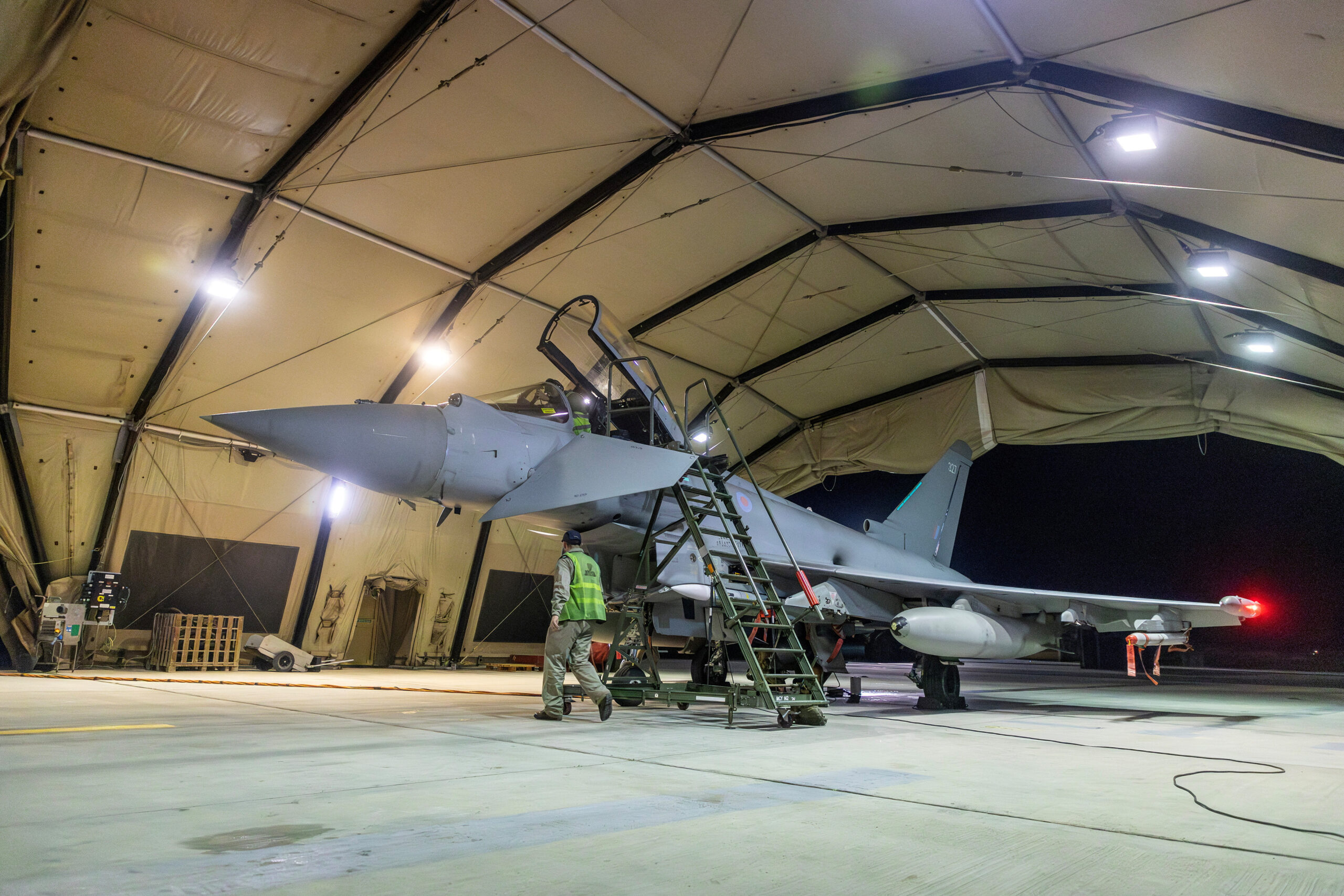Bombing Yemen Won’t Protect Britain’s Precious Trade Interests

Last night, the UK and US carried out airstrikes on targets in Yemen. The Americans hit 60 targets at 16 sites, and four British Typhoon jets struck two Houthi facilities. Australia, Bahrain, Canada and the Netherlands provided non-operational support.
James Heappey, the armed forces minister, characterised the joint attack as “self defence”: Houthi fighters, a Shia militia from western Yemen, have been operating in the Red Sea in opposition to Israel’s indiscriminate bombardment of Gaza. In November, they seized the cargo ship Galaxy Leader, and in the first week of January fired on the British warship HMS Diamond.
The Houthi deputy foreign minister promised retaliation: “Our country was subjected to a massive aggressive attack by American and British ships, submarines and warplanes […] [They] will have to prepare to pay a heavy price and bear all the dire consequences of this blatant aggression.”
Keir Starmer, when asked about the US-UK airstrikes in Yemen during an interview with BBC 5 Live this morning, said that he backs the government in taking military action. “Clearly the Houthi attacks in the Red Sea have to be dealt with,” he said. “Their attacks on commercial shipping, attacks on important trade routes and putting civilian lives at risk and therefore, we do support this action.”
Though the US and UK’s aerial operation represents a new phase in Israel’s war on Gaza widening into regional conflict, both powers provided logistical, training and intelligence support to the Saudi-UAE led coalition bombing campaign in Yemen between 2015 and 2022 (there is currently a ceasefire). Yemen is the poorest nation in the Arab world; the Saudi-led naval blockade left 20 million Yemenis facing humanitarian disaster as fuel and food imports were effectively cut off. There is a certain ghoulish irony that after facilitating deadly starvation and disease in Yemen by cutting off its maritime trade, the West has bombed Houthi targets in the name of protecting commercial shipping.
What does this mean for the delicate dance of powers in the Middle East? Saudi Arabia, straining to maintain its uneasy detente with Iran, distanced itself from last night’s attack on the Houthis (who are backed by the Islamic Republic). An Iranian foreign ministry spokesperson condemned the airstrikes, saying: “We consider it a clear violation of Yemen’s sovereignty and territorial integrity, and a breach of international laws, regulations, and rights.” Hezbollah, the Iran-backed militia in Lebanon, also denounced the attack.
A direct military confrontation between the West and Iran in the immediate future is highly unlikely (our own Aaron Bastani explains why: basically, it’s a fucking big country with a highly developed military-industrial complex). But that doesn’t mean our government won’t embroil itself in a doomed attempt to remove the Houthis from Yemen. The Saudi-UAE campaign devastated the country, but failed to shift the Houthis from areas in their control. What’s more, an escalation of regional conflict makes attacks on Saudi fossil fuel infrastructure more likely, a la 2019’s drone attack on the world’s largest oil processing facility which knocked out half of Saudi Arabia’s oil supply. If the UK government hopes last night’s attacks on Yemen will protect commercial interests, they may find themselves sorely disappointed.
Ash Sarkar is a contributing editor at Novara Media.


